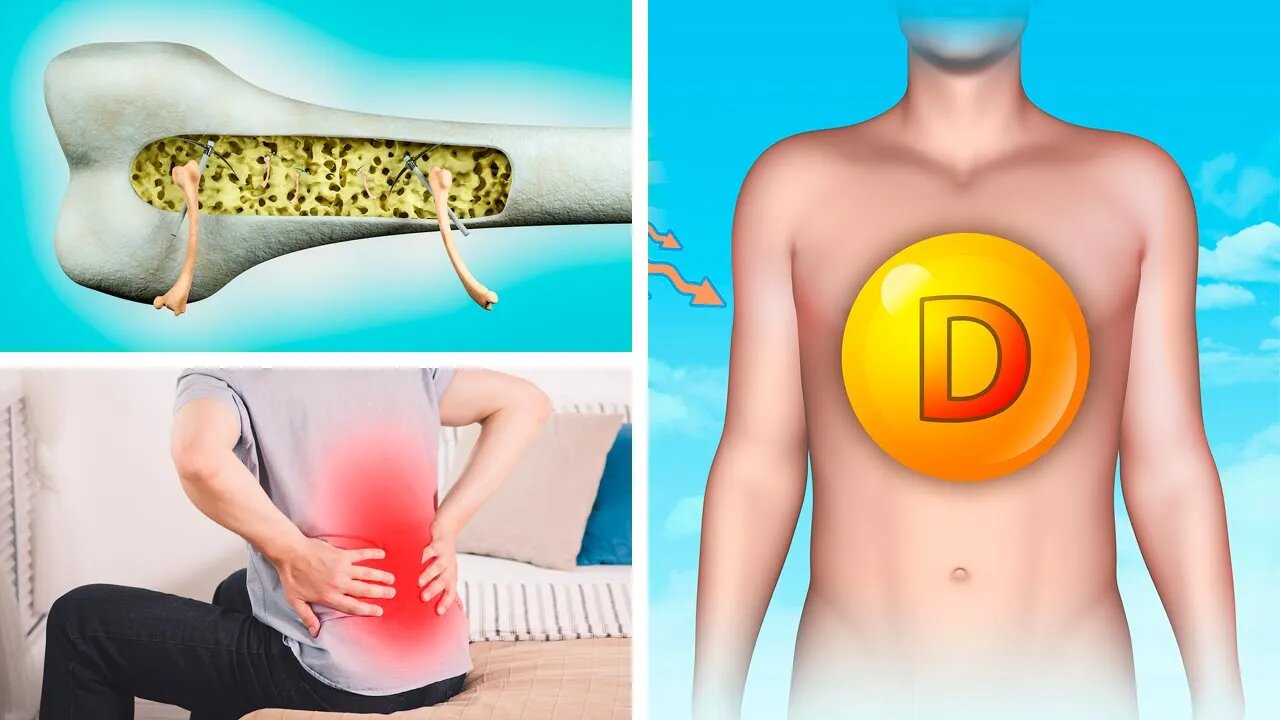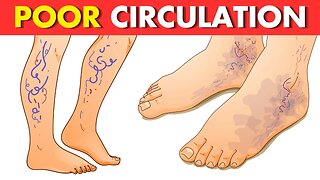Premium Only Content

5 Signs of Vitamin D Deficiency To Not Ignore
Have you heard about vitamin D? Have you noticed how many times we mention it on our channel?
But now we want to ask: do you know the consequence of the lack of vitamin D?
In today's video, you will see 5 signs of vitamin D deficiency and how to treat this problem.
Actually, vitamin D deficiency is something usual. It is estimated that around 1 billion people in the world have low levels of this vitamin. But this element is necessary to the body and has key functions in our health.
When our vitamin D is low, the body sends a series of signs, such as:
Trouble sleeping
The lack of vitamin D is commonly associated with sleep disorders.
Weak immune system
One of the most important functions of vitamin D is keeping our immune system strong.
Anxiety and depression
Constant mood changes may be related to low vitamin D.
Lack of energy
Fatigue and tiredness are the two of the main signs of low vitamin D levels.
Muscle pain
Vitamin is extremely important for bone and muscle health.
Liking the video? Then give it a like and share it with your friends to help the channel!
These symptoms suggest the deficiency of vitamin D, which can be confirmed through a blood test solicited by your doctor.
0:00 Signs and Symptoms of Vitamin D Deficiency
0:36 Trouble sleeping
0:51 Weak immune system
1:07 Anxiety and depression
1:26 Lack of energy
1:36 Muscle pain
2:08 How to Increase Vitamin D Levels
----------------------------------------
Facebook: https://bit.ly/38BWbw3
Pinterest: https://bit.ly/2Irvwa6
Disclaimer: The materials and the information contained on Natural Cures channel are provided for general and educational purposes only and do not constitute any legal, medical or other professional advice on any subject matter. These statements have not been evaluated by the FDA and are not intended to diagnose, treat or cure any disease. Always seek the advice of your physician or other qualified health provider prior to starting any new diet or treatment and with any questions you may have regarding a medical condition. If you have or suspect that you have a medical problem, promptly contact your health care provider.
-
 4:50
4:50
Natural Cures
1 year ago $1.14 earned5 Warning Signs of Poor Circulation and How to Fix It
3.34K1 -
 LIVE
LIVE
Alex Zedra
2 hours agoLIVE! New Game | R.E.P.O
587 watching -
 1:52:42
1:52:42
Kim Iversen
4 hours ago💰 CHA-CHING! 💰 Trump Unveils Big Money Plans For Gaza AND America
35.2K68 -
 1:05:28
1:05:28
Flyover Conservatives
16 hours agoUkraine’s Dirty Secret: The Christian Persecution No One Wants to Talk About - Alex Newman | FOC Show
23.5K5 -
 2:00:20
2:00:20
Glenn Greenwald
9 hours agoThe View from Moscow: Key Russian Analyst Aleksandr Dugin on Trump, Ukraine, Russia, and Globalism | SYSTEM UPDATE #414
70K22 -
 1:10:55
1:10:55
Donald Trump Jr.
6 hours agoBREAKING NEWS: My Father Revokes Biden-Maduro Oil License, LIVE with Maria Corina Machado | Triggered Ep.220
162K169 -
 1:25:29
1:25:29
Sarah Westall
5 hours agoX-Files True History, Project Blue Beam, Cabal Faction War w/ Former FBI Agent John DeSouza
57.4K4 -
 7:03:49
7:03:49
Dr Disrespect
12 hours ago🔴LIVE - DR DISRESPECT - NEW PC VS. DELTA FORCE - MAX SETTINGS
146K26 -
 49:04
49:04
Lights, Camera, Barstool
1 day agoIs The Monkey The Worst Movie Of The Year?? + Amazon Gets Bond
57.4K4 -
 24:19
24:19
Adam Carolla
1 day agoDiddy’s Legal Drama Escalates, Smuggler Caught Hiding WHAT? + Philly Eagles & The White House #news
74.3K13